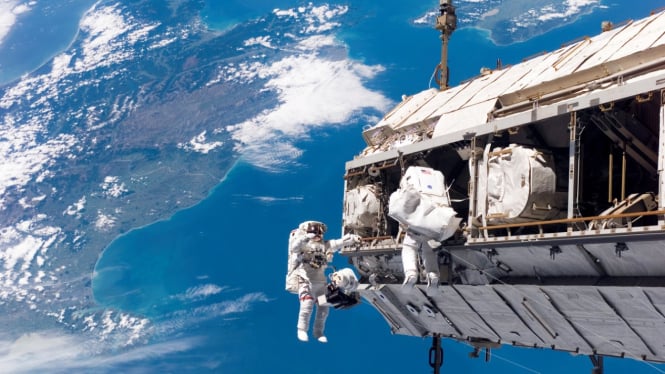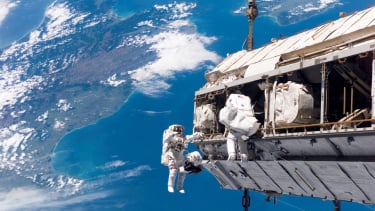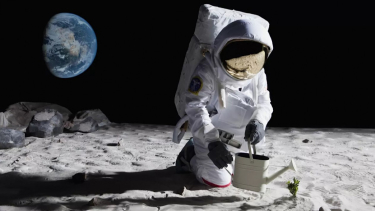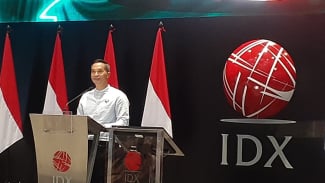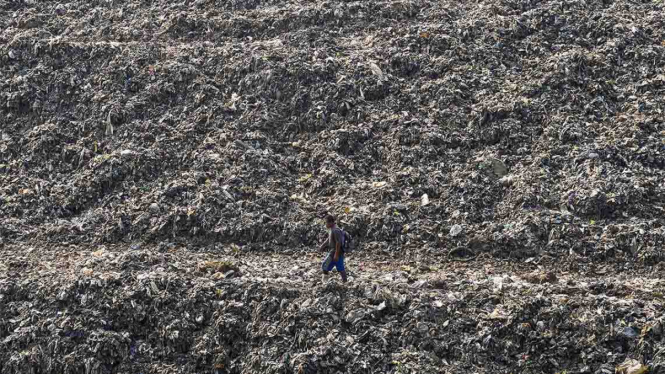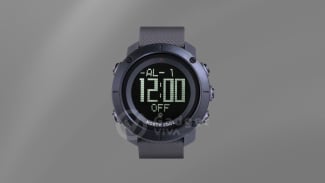- SpaceNews
VIVA – Astronauts aboard the International Space Station (ISS) have achieved a 98% water recovery rate in a breakthrough achieved by a method that might make the faint of heart slightly squeamish, they hit peak astronaut urine, sweat recycling.
The water recycling achievement is an important milestone for low-orbit space missions that aim to provide the basic needs of astronauts without resupply missions. This means recycling or regenerating things like food, air, and water.
In terms of the International Space Station (ISS), each crewmember needs around a gallon of water each day for drinking, food preparation, and hygiene uses like brushing teeth.
The ideal goal in terms of water has been a 98% recovery of the initial water that crews take into space with them at the start of longer missions.
Ilustrasi astronot yang sedang bercocok tanam di Bulan.
- Getty Images
"This is a very important step forward in the evolution of life support systems, Let's say you launch with 100 pounds of water. You lose 2 pounds of that, and the other 98% just keeps going around and around. Keeping that running is a pretty awesome achievement." part of the team at Johnson Space Center that manages life support systems on the ISS, Christopher Brown, said in a statement.
The water recovery milestone was achieved by the Environmental Control and Life Support System (ECLSS) during a demonstration of the improved Urine Processor Assembly (UPA) which recovers water from urine using vacuum distillation.
The ECLSS is made up of a combination of hardware, including a Water Recovery System that collects wastewater and advanced dehumidifiers that capture moisture from the air of the ISS as a result of the crew’s breath and sweat.
This collected water is sent to the Water Processor Assembly (WPA), which then produces drinkable water.
Like any other wastewater collected, it is treated by WPA with a series of specialized filters and catalytic reactors that break down residual contaminants.
Sensors then check the purity of the water. Liquid substances that do not meet the standards are sent back for reprocessing.
Iodine is added to acceptable water to prevent microbial growth, then stored for future use by the crew. If this begs the question, do astronauts drink urine in space?
The answer is of course not. The team points to the fact that water produced on the ISS is superior to water produced by water systems on Earth.
"The processing is basically similar to the water distribution system on Earth, except it's done in microgravity. The crew are not drinking urine, they are drinking water that has been recaptured, filtered and cleaned in a way that is cleaner than what we drink on Earth," Williamson explained.

